Iraqi Shia militias' show of force in battle for Mosul
- Published
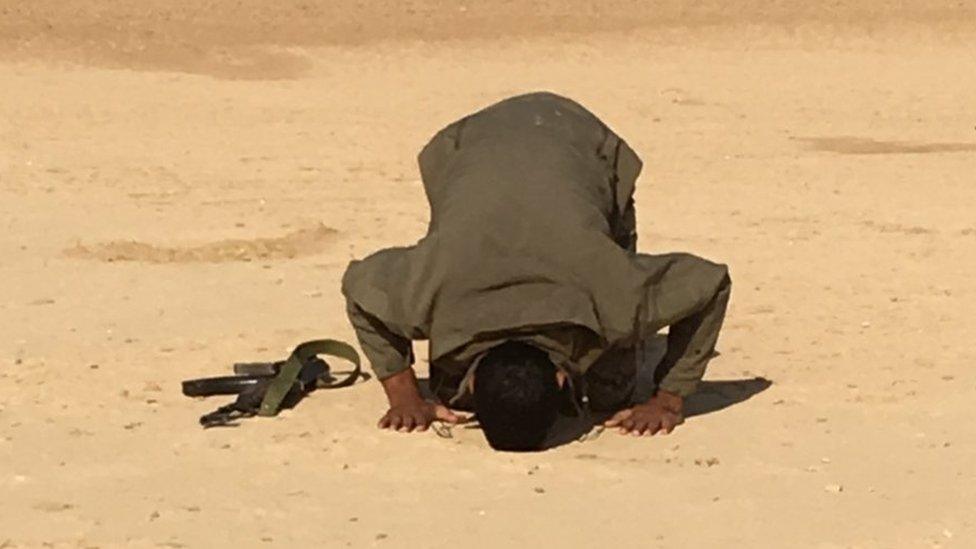
Shia militias have been accused of serious abuses in previous operations against IS, including war crimes
In hues of red, green, and gold, the flags are hard to miss. When Iraq's powerful Shia militias take control of an area, they plant their banners liberally, like seeds in the soil. In a country blighted by sectarian bloodshed, some think it's a poisonous crop.
The fighters have achieved significant victories against the Sunni extremists of the so-called Islamic State (IS), driving them from a swathe of territory south-west of Mosul.
They claim to have cleared more than 2,000 sq km (772 sq miles). This is now the terrain of the Popular Mobilisation Units (PMUs). It's a coalition of mostly Shia paramilitaries, backed by Iran.
'Mosul is surrounded'
We were taken to see one of their most recent gains: a rough dirt and gravel road linking Mosul to Raqqa, the self-declared IS capital across the border in Syria. It was a crucial artery for IS, with two-way traffic of fighters and weapons.
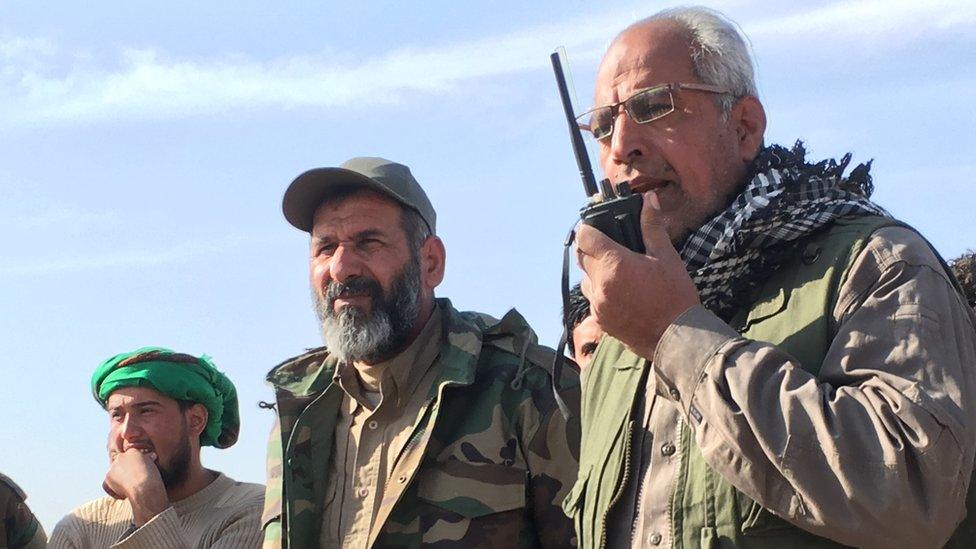
Battlefield PMU commander Gen Ali al-Hamdani choreographs attacks by his forces using a walkie-talkie
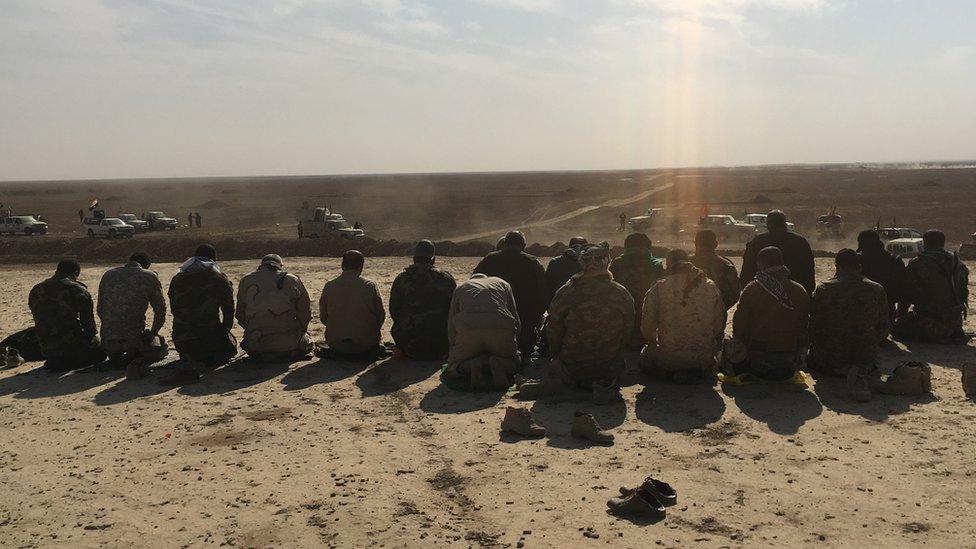
Shia fighters have achieved significant victories against IS forces
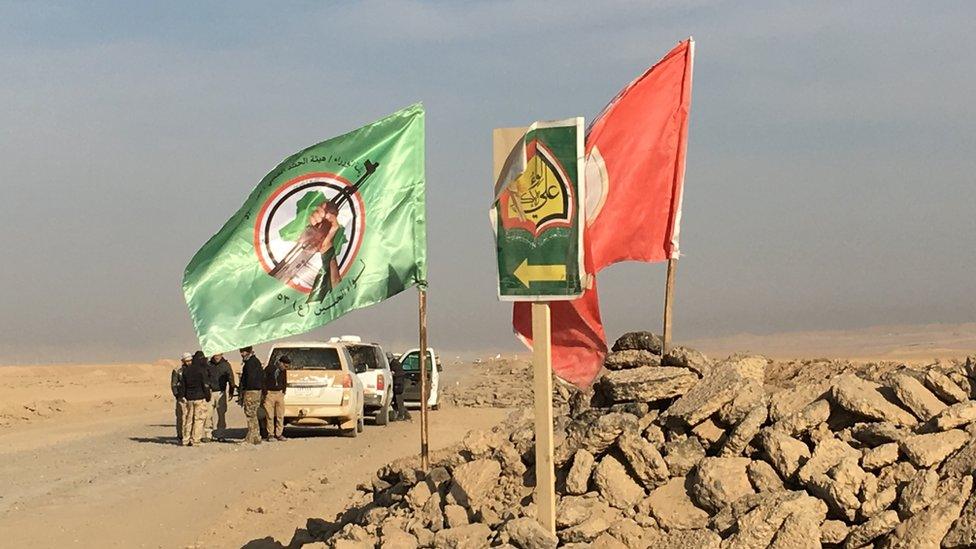
When Iraq's powerful Shia militias take control of an area, they plant their banners liberally
"That used to be a very heavy logistics road so they can export car bombs from Syria," said the PMU spokesman, Ammar al-Musawi, standing by the roadside.
"There were three routes and we took all of them. There is no way out. Right now I can say that loud and clear Mosul is surrounded 100%."
While PMU forces have completed the encirclement of Mosul, the Shia-led Iraqi government has promised they won't enter the mainly Sunni city. Some there say they fear the paramilitaries more than extremists of IS.
Shia militias have been accused of serious abuses in previous operations against IS, including war crimes. As trucks full of fighters passed, heading for the frontline, Mr al-Musawi gave his response.
"Let me put it that way: we are army, and we are not angels," he told me. "I mean, let's talk about big armies in the world, the great armies in the world. Let's talk about US army, what happened in Abu Ghraib. So if there is someone who did a mistake, he will go to the judge."
'Torture, beatings and death'
That may not reassure human rights groups like Amnesty International, who are worried about a repeat of the past.
"The immediate concern is definitely a recurrence of what happened before in Fallujah," said Razaw Salihy, Iraq campaigner at Amnesty International.
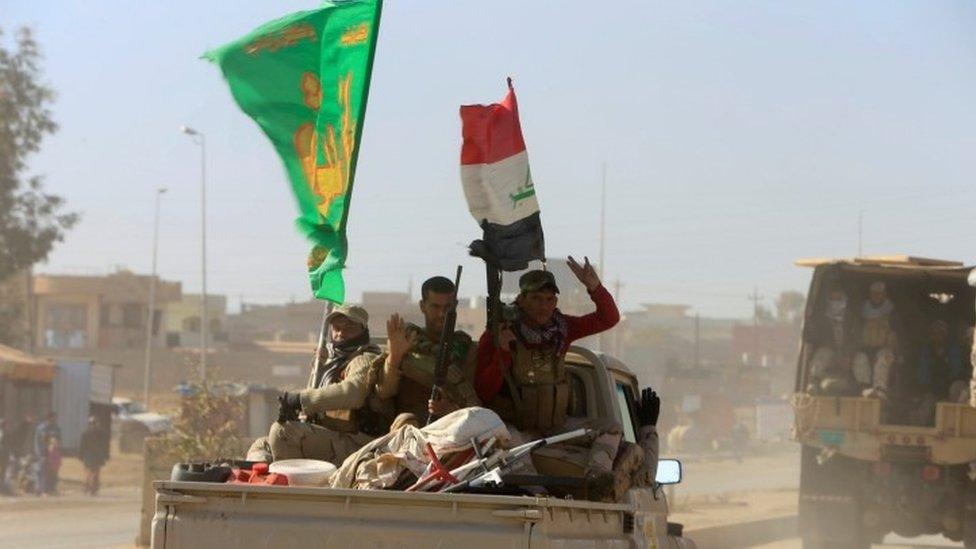
The Iraqi army insists that only its forces (above) will enter Mosul
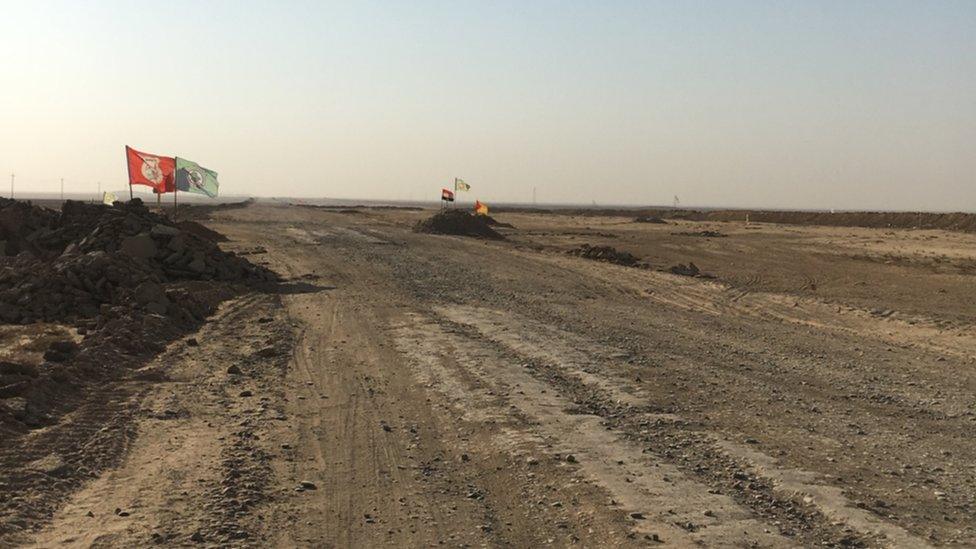
All roads linking Mosul to Raqqa are now under Shia control, the militia groups say
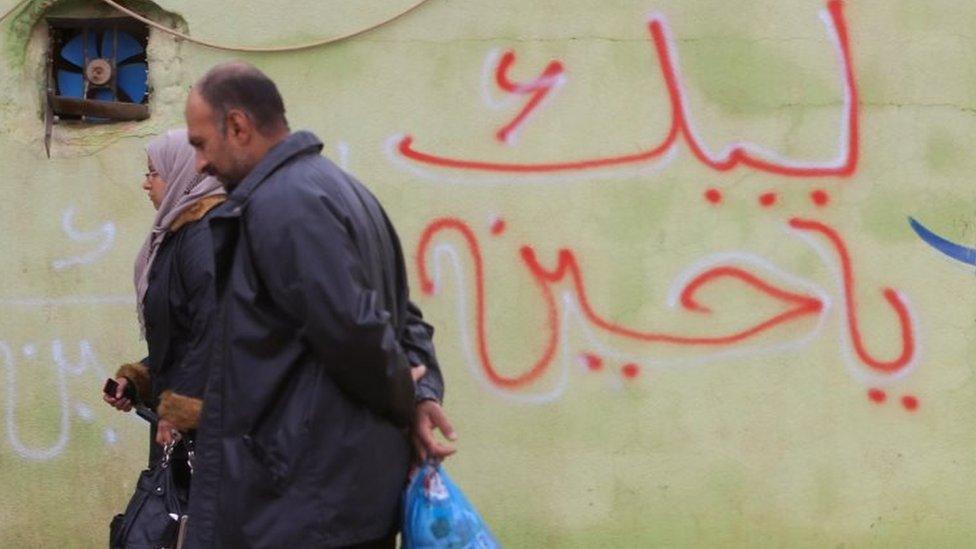
Rights groups are concerned that Shia militia groups may enflame sectarian hatred in mainly Sunni Mosul
Amnesty says that during operations to retake the city in May and June, Shia militias detained 1,300 men and boys from a Sunni tribe.
"More than 600 are still missing," said Ms Salihy. "Witnesses spoke of incidents of torture, beatings and death."
Critics are also worried about legislation, recently passed by the Iraqi parliament, fully legalising the PMU as part of the armed forces.
It is now an authorised but separate military corps.
"We are concerned that the law is vague," said Ms Salihy.
"They will be under the prime minister but not the ministry of defence. How will they be answerable? What oversight will there be?"
Iraq's Western allies - who also have their concerns about the Shia paramilitaries - will be watching carefully to see where they direct their firepower as they continue their advance.
In the weak sunlight of a winter morning, we witnessed them closing in on the mostly Sunni village of Tal Faris. They said it was empty of all but IS fighters.
Convoys of military vehicles approached from two directions, enveloped in clouds of desert dust.
IS fighters were quick to respond. By noon, four suicide bombers in improvised armoured vehicles came speeding from the village. A pair of Iraqi army helicopters swooped in, targeting them from above.
On the high ground overlooking the battlefield PMU commander Gen Ali al-Hamdani choreographed the attack shouting orders into a walkie-talkie.
"Use the cannons and rockets," he said. "Pound this area. They are there and I don't want any of them to escape. Hurry. Let's burn the village."

He told his men to keep their distance.
"Do a circle, one kilometre back," he ordered. "Please don't go closer. Watch from left and right because we are in an open field. You are heroes."
By early afternoon some had paid with their lives. The PMU refused to disclose how many.
As air strikes rained down on IS positions, there were cries of "Labaik Ya Hussein" from his fighters - a phrase used in times of battle, invoking the memory of the revered Shia Imam Hussein ibn Ali.
As to whether they will ultimately enter Mosul, Gen al-Hamdani said they would follow orders.
"We have our leadership and they will tell us that. We have a commander and our commander will go to the prime minister."
He was dismissive of allegations of abuses by Shia paramilitary units, and of respected international human rights groups.
"I was in intelligence," he said.
"I know what these people were doing here. They pretended to be helping Iraqis but they were transferring information to Daesh (IS)."
"Anyone who is against the PMU is supporting Daesh."